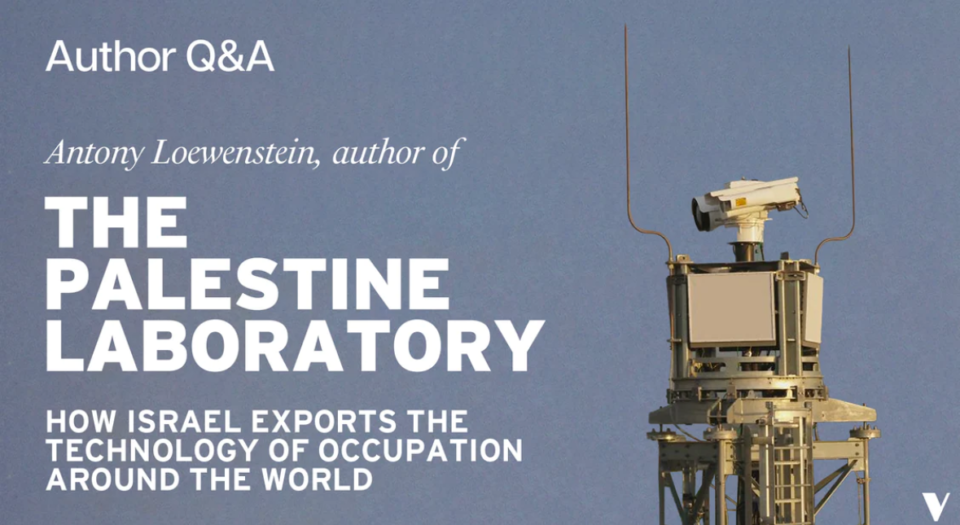Before my book, The Palestine Laboratory, was released in May, my UK/US publisher, Verso, asked me to answer some questions to generate media interest. None of us could have expected the avalanche of global interest in the months since. After the monumental events of 7 October, Verso published the Q&A and included some details about that fateful day.
Here’s an extract:
Verso: How did the extensive Israeli surveillance systems fail on Oct 7th, and how might the current Israeli retaliation ultimately feedback into this defense sector?
AL: Israel’s vaunted surveillance capabilities in and around Gaza have been a combination of human intelligence, often by blackmailing Palestinians who want to exit Gaza for medical or educational reasons, drones and tailored ops. Before the recent Hamas attack on Israel, it was widely presumed that Israel had successfully controlled the land, sea and air borders of Gaza. What I’m hearing is that Israel, like the US after 9/11, overly relied on digital surveillance and far less on the human intelligence side in the last 5-10 years, leaving open the possibility of a major security breach. Of course, the wider context is that it’s impossible to successfully occupy a people for decades and not receive violent resistance. Israel’s devastating response to bombard Gaza will achieve little more than further extremism.
However, despite the recent Israeli intelligence failures, I expect Israel’s defense sector to continue its upwards growth due to large numbers of nations around the world still overly reliant on Israeli surveillance tech, Russia’s invasion of Ukraine pushing large numbers of European states to purchase Israeli missile defense shields and Western sympathy for Israel after the Hamas attack.
Read the whole thing: Q&A with Antony Loewenstein, author of The Palestine Laboratory – Verso
